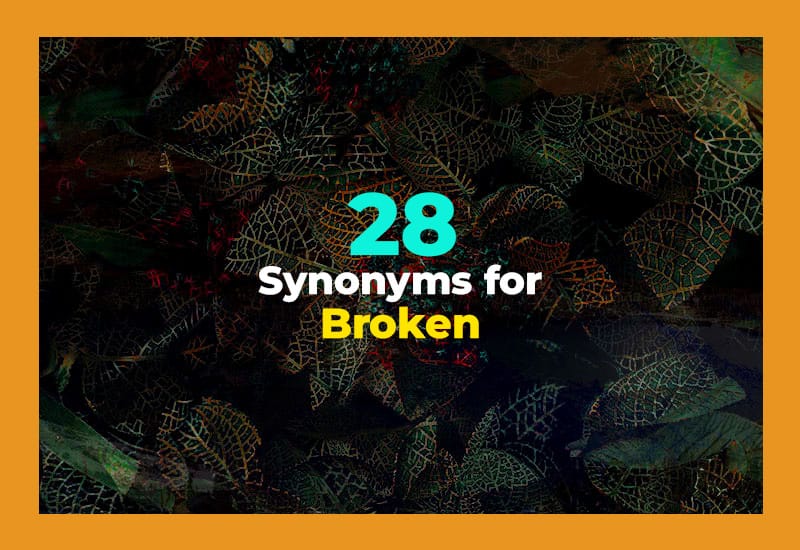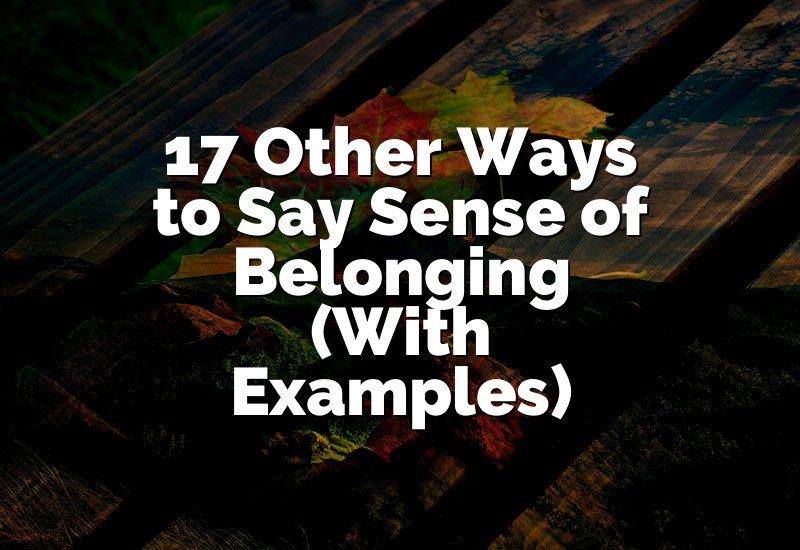You know when something just doesn't work anymore? Like a phone screen that's smashed or a toy that doesn't move? We usually say it's "broken." But why not try something new? Words like cracked, shattered, or wrecked can make your speech or writing more fun and clear. In this article, we'll look at 28 easy synonyms for “broken,” each with simple meanings and examples. These words are great for daily use and easy to remember.
1. Shattered
Shattered means something is broken into many tiny pieces. It's often used for glass or something delicate. For example, “The window was shattered during the storm.” This word gives a strong picture in your mind, showing that something is not just broken—it's in bits. You can also use it to talk about feelings, like “He felt shattered after the sad news.” Whether you’re talking about things or emotions, “shattered” is a great word when the damage is really bad and clear.
2. Cracked
Cracked means there is a line or split on the surface, but the object is still in one piece. For example, “I dropped my phone and the screen cracked.” It's not completely broken, but it's definitely damaged. You can also use it in other ways like, “Her voice cracked when she was nervous.” This word is great when something has a small break but is still kind of working or holding together.
3. Damaged
Damaged means something is harmed but not completely ruined. For example, “The package arrived damaged, but the item inside was okay.” It can be used for things like cars, books, and even feelings. You might say, “He felt damaged after the argument.” It's a helpful word when talking about something that isn't the same anymore but not totally useless. It's still there, but it has problems now.
4. Fractured
Fractured usually means a bone or hard object has a small break or crack in it. For example, “She fractured her arm while playing soccer.” But you can also use it for other things like, “There was a fractured relationship between the teammates.” It's a more serious word than cracked, often used when something strong is hurt or weak now. It means there's damage, but maybe not complete destruction.
5. Split
Split means something has been divided into parts, either by accident or on purpose. For example, “The board split in two when I stepped on it.” You can also use it for people or groups, like “The class split into teams.” When something is broken into two or more parts, “split” is a good word. It shows separation, either physical or emotional, and it's easy to understand.
6. Smashed
Smashed means something is broken by being hit very hard. For example, “The vase fell and smashed on the floor.” It's great for things made of glass, ceramic, or other breakable stuff. You can also say, “He smashed the pumpkin for fun.” It's a loud, action word that gives a strong image of something being completely ruined with force. It usually means there's no way to fix it.
7. Ruptured
Ruptured means something has burst or torn open. For example, “The pipe ruptured and water spilled everywhere.” It's often used in science or health, like “She had a ruptured appendix.” This word is a little more serious and is used when something breaks from inside, often with pressure. It tells us the break was sudden and possibly dangerous. Use it when the damage is serious and not simple to fix.
8. Crushed
Crushed means something is pressed or squished with a lot of force until it loses its shape. For example, “The can was crushed under the car tire.” You can also say, “He felt crushed by the news.” It works for both physical and emotional situations. It's a strong word that means something is very damaged and flattened. When you want to show heavy damage, “crushed” is perfect.
9. Collapsed
Collapsed means something has fallen down or failed completely. For example, “The building collapsed after the fire.” It can also mean a person fainted or gave up, like “He collapsed after the long run.” This word is useful when something stops working suddenly or falls apart. Whether it’s a thing or a person, “collapsed” shows a total breakdown.
10. Wrecked
Wrecked means something is badly broken or destroyed. For example, “The car was wrecked in the accident.” It's often used for large things like cars, boats, or buildings. You can also say, “That night wrecked my plans.” It's a good word when damage is big and likely can't be fixed. It tells people something is totally messed up or ruined.
11. Destroyed
Destroyed means something is completely broken into pieces and cannot be used again. For example, “The storm destroyed several homes.” It can also be used for ideas or plans, like “Her dream was destroyed by the bad news.” This word is very strong and final. When you use “destroyed,” it means something is gone, broken beyond repair, and will not work or return.
12. Impaired
Impaired means something is not working properly or as well as it should. For example, “His hearing is impaired after the loud concert.” It's often used for senses or abilities, like vision or memory. You can also say, “The engine was impaired and ran slowly.” This word is more formal and gentle than others. It's used when something still works, but not at full strength or quality.
13. Defective
Defective means something has a fault or doesn't work right from the start. For example, “I returned the phone because it was defective.” It's used for products or items that are broken when you buy them. You might also hear, “The toy had a defective switch.” It's helpful when you want to explain that something has a problem that stops it from working well, usually because of a mistake in how it was made.
14. Busted
Busted is a casual word that means broken or not working. For example, “My headphones are busted again!” It's fun and informal, often used in speech more than writing. You can also say, “He got busted for lying,” which means he got caught. But when talking about things, “busted” just means something's not working right now and might need fixing or tossing away.
15. In pieces
In pieces means something is completely broken into many parts. For example, “The glass fell off the table and was in pieces.” It shows that something can't be used anymore because it's all broken up. You can also use it for emotions, like “She was in pieces after hearing the sad news.” This phrase is easy to understand and shows serious damage, whether to things or feelings.
16. Fragmented
Fragmented means something has been broken into small parts. For example, “The mirror was fragmented after the accident.” It can also be used for ideas or thoughts, like “His memories were fragmented.” It's a slightly formal word but good for showing that something is no longer whole. Use it when something is broken into different pieces, especially when those pieces are still around, just not together.
17. Disconnected
Disconnected means two or more parts are no longer linked or joined. For example, “The wire was disconnected, so the fan stopped working.” It can also mean people or ideas are not in sync, like “She felt disconnected from her friends.” This word is great for both physical and emotional situations. It doesn't always mean broken in the usual sense, but it shows things are no longer working together.
18. Splintered
Splintered means something is broken into thin, sharp pieces. For example, “The wooden chair splintered when I sat on it.” It usually happens with wood or hard material. You can also use it in a story, like “The group splintered into smaller teams.” It's a good word when you want to describe something breaking in a sharp and uneven way.
19. Disassembled
Disassembled means something has been taken apart. For example, “He disassembled the computer to clean the fan.” This doesn't always mean broken—sometimes it's done on purpose. But you can also use it to show that something no longer works. For example, “The machine looked broken after being disassembled.” It's a useful word when parts are no longer together and the item doesn't work as it should.
20. In ruins
In ruins means something is destroyed, usually in a big or sad way. For example, “The old castle was in ruins after years of neglect.” You can use it for buildings, places, or feelings. For instance, “His career was in ruins after the scandal.” It shows a large amount of damage and loss. This phrase is strong and paints a big picture of something that's no longer whole or useful.
21. Faulty
Faulty means something doesn't work the way it should because it has a problem. For example, “The car had a faulty brake.” It's often used when something was made wrong or doesn't run correctly. You might also hear, “The TV keeps turning off—it must be faulty.” This word is helpful when something works a little bit but keeps failing or has a mistake in how it was built.
22. Unusable
Unusable means something cannot be used at all. For example, “The tool was bent and now it's unusable.” It's a clear and easy way to say something is too broken or damaged to work. You can also say, “The data was corrupted and became unusable.” Use this word when there's no way to fix or use something again.
23. Malfunctioning
Malfunctioning means something is not working right. For example, “The printer is malfunctioning and won't print anything.” It's usually used for machines, tools, or electronics. You might also hear, “The robot malfunctioned during the test.” This word means there's a problem that keeps it from working properly. It doesn't always mean it's fully broken, but it's not working like it should.
24. Out of order
Out of order means something is not working. You've probably seen signs that say, “Out of order” on vending machines or elevators. For example, “The coffee machine is out of order today.” It's easy to understand and very common in public places. It doesn't say how broken something is, but it tells people not to use it because it's not working right now.
25. Compromised
Compromised means something is weaker, broken, or no longer safe. For example, “The building's structure was compromised after the earthquake.” It can also mean trust or safety has been broken, like “The data was compromised during the hack.” This word sounds serious and is great when something important or secure no longer works as it should.
26. Inoperative
Inoperative means something is not running or working. For example, “The air conditioner was inoperative during the heatwave.” It's a formal word, often used in reports or instructions. It's helpful when you want to say something is not doing its job at all. You might also say, “The remote was inoperative after getting wet.”
27. Dilapidated
Dilapidated means something is old, broken, and falling apart. For example, “The house looked dilapidated with its broken windows and roof.” It's often used for buildings, roads, or old machines. It gives a picture of something that once worked but now is in very bad shape. It's useful when you want to show something is broken and worn down over time.
28. Ruined
Ruined means something is so broken or damaged that it can't be fixed or used. For example, “The cake was ruined when it fell on the floor.” You can also use it for plans, feelings, or events, like “Rain ruined the outdoor party.” It's a strong word that clearly shows complete damage or loss. If you want to say something is finished because of damage, "ruined" is the perfect word.

Final Thoughts
Broken things are part of life—but your words don't have to be! Now you have 28 new and simple ways to say "broken." Whether it's a toy, a heart, or a machine, there's a perfect word to describe what's wrong. Using these synonyms will make your writing and speaking more fun, clear, and real. Try them out today and see how much better your ideas sound!
| Synonym | Meaning | Example |
|---|---|---|
| Shattered | Broken into tiny pieces | The mirror was shattered in the crash. |
| Cracked | Has a break or line | I dropped the cup and it cracked. |
| Damaged | Harmed but not destroyed | The box was damaged during shipping. |
| Fractured | Has a small break | She fractured her wrist while skating. |
| Split | Divided into parts | The log split in half after the chop. |
| Smashed | Hit hard and broken | The plate smashed on the floor. |
| Ruptured | Burst or torn open | The pipe ruptured and water leaked everywhere. |
| Crushed | Pressed flat or broken | The can got crushed under the weight. |
| Collapsed | Fell down or failed | The tent collapsed in the wind. |
| Wrecked | Badly broken or ruined | The car was wrecked after the crash. |
| Destroyed | Completely broken | The fire destroyed the whole house. |
| Impaired | Not working well | His vision was impaired by the bright light. |
| Defective | Made wrong or broken | The product was defective from the factory. |
| Busted | Broken (informal) | My phone is busted again! |
| In pieces | Broken into parts | The vase was in pieces after it fell. |
| Fragmented | In small broken parts | The glass was fragmented everywhere. |
| Disconnected | Not joined or linked | The wires were disconnected. |
| Splintered | Broken into sharp pieces | The chair splintered under pressure. |
| Disassembled | Taken apart | He disassembled the machine for repair. |
| In ruins | Totally broken and sad | The city was left in ruins. |
| Faulty | Has a flaw or issue | The heater was faulty and didn't work. |
| Unusable | Cannot be used | The water was dirty and unusable. |
| Malfunctioning | Not working right | The robot is malfunctioning again. |
| Out of order | Not working (common sign) | The restroom is out of order. |
| Compromised | Weakened or unsafe | The bridge was compromised after the storm. |
| Inoperative | Not working at all | The phone became inoperative in the rain. |
| Dilapidated | Old and falling apart | The house looked dilapidated and scary. |
| Ruined | Totally destroyed | The dress was ruined by the spill. |









